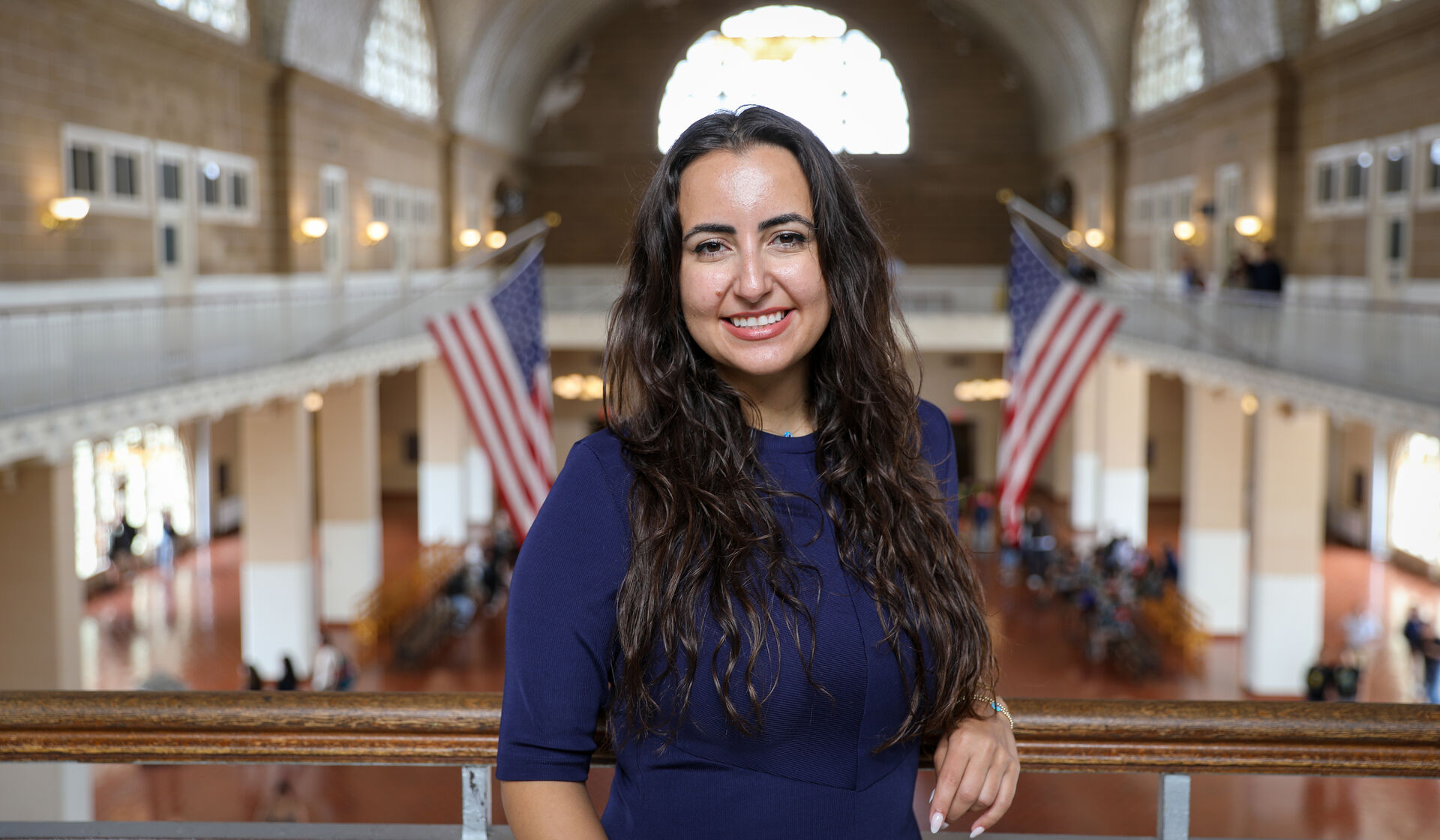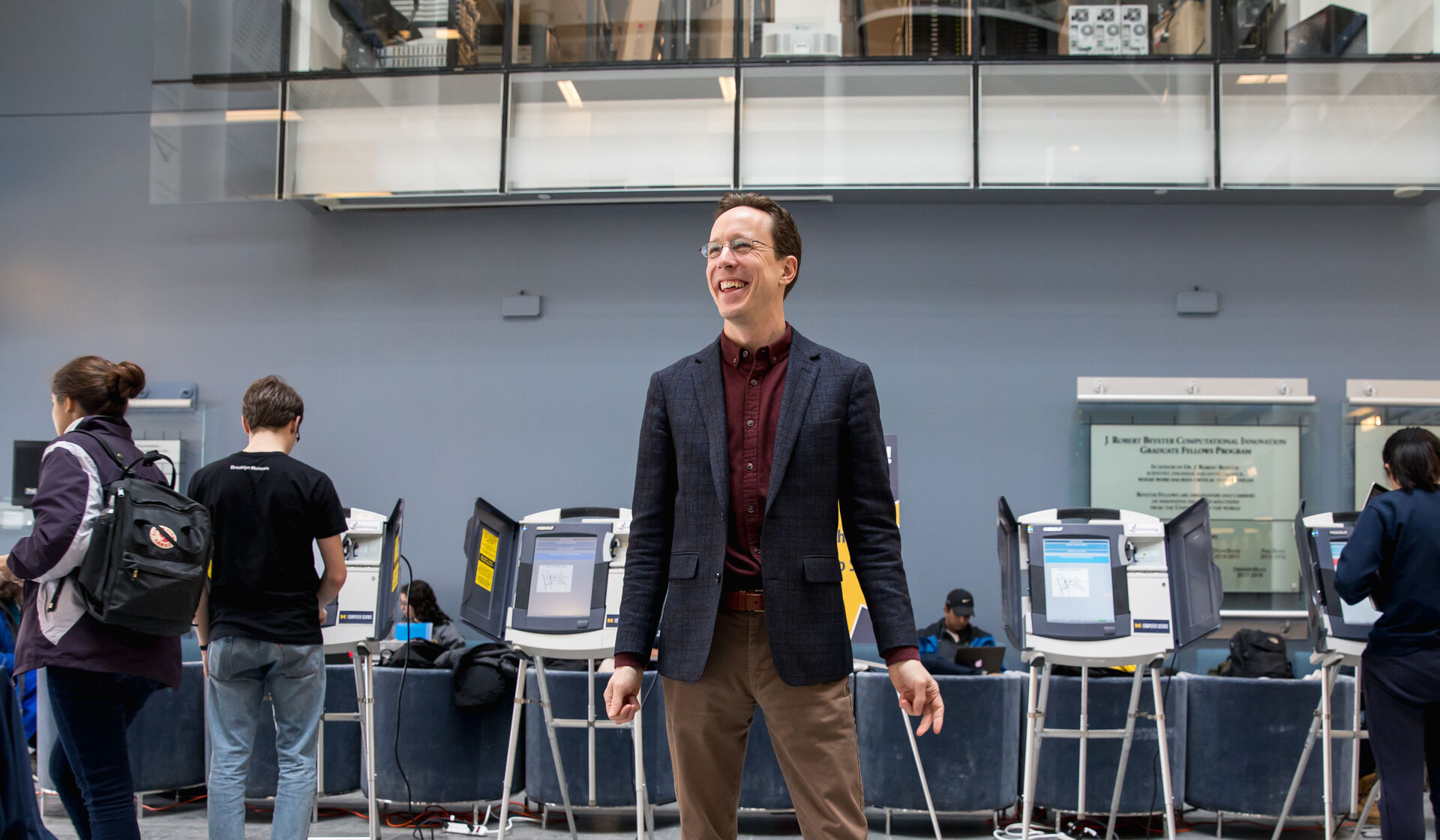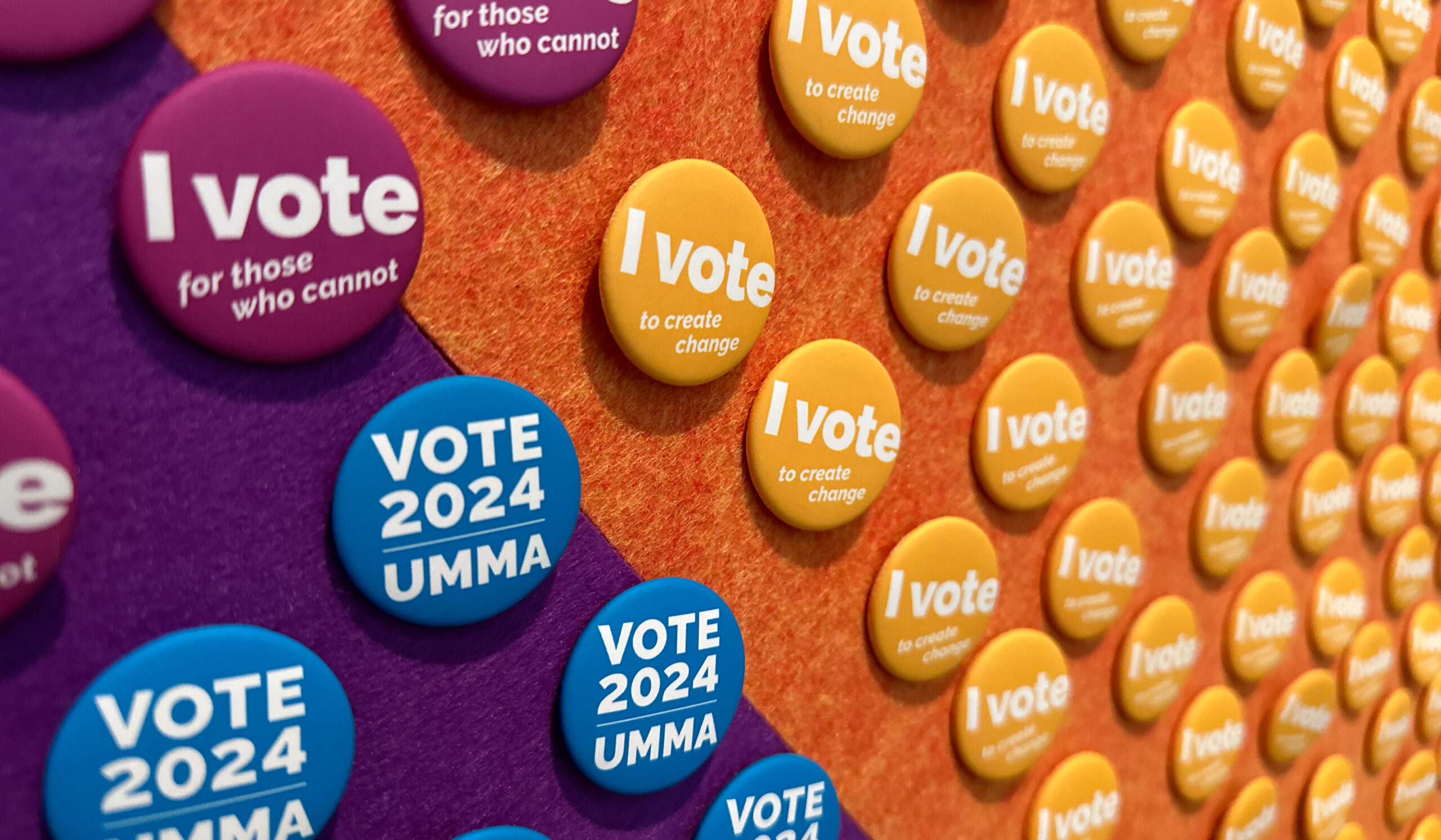The Marathon Back to U-M
•
Photo by Jeremy Carroll
In August of 1989, Corie Pauling, ’93, sat in a pickup truck packed full of the clothes, school supplies, and dorm room decor that would soon be carted into Mosher-Jordan Hall for her first semester at the University of Michigan.
The pickup was borrowed from one of her aunts and, unbeknownst to its passengers, had a manual transmission and no one in the vehicle knew how to drive a stick shift. With a mostly flat and straight ride from Detroit, Pauling’s Aunt Gerri managed to get to Ann Arbor with little difficulty, until the hill of State Street loomed before them. It was riddled with red lights and a constant flow of pedestrians.
As the truck stopped, stalled, and jerked back to life over and over, Aunt Gerri began to sweat and Pauling grew more anxious by the minute, concerned about the impression she must be leaving on her soon-to-be classmates and professors.
When the truck bucked and stalled once again, Aunt Gerri turned to look at Pauling, took a steady, determined breath, and said: “I will get you there, Coco,” using Pauling’s childhood nickname.
Aunt Gerri put the truck in neutral, restarted it once more, and eased off the clutch, braving the final push and delivering Pauling to the first day of the rest of her life.
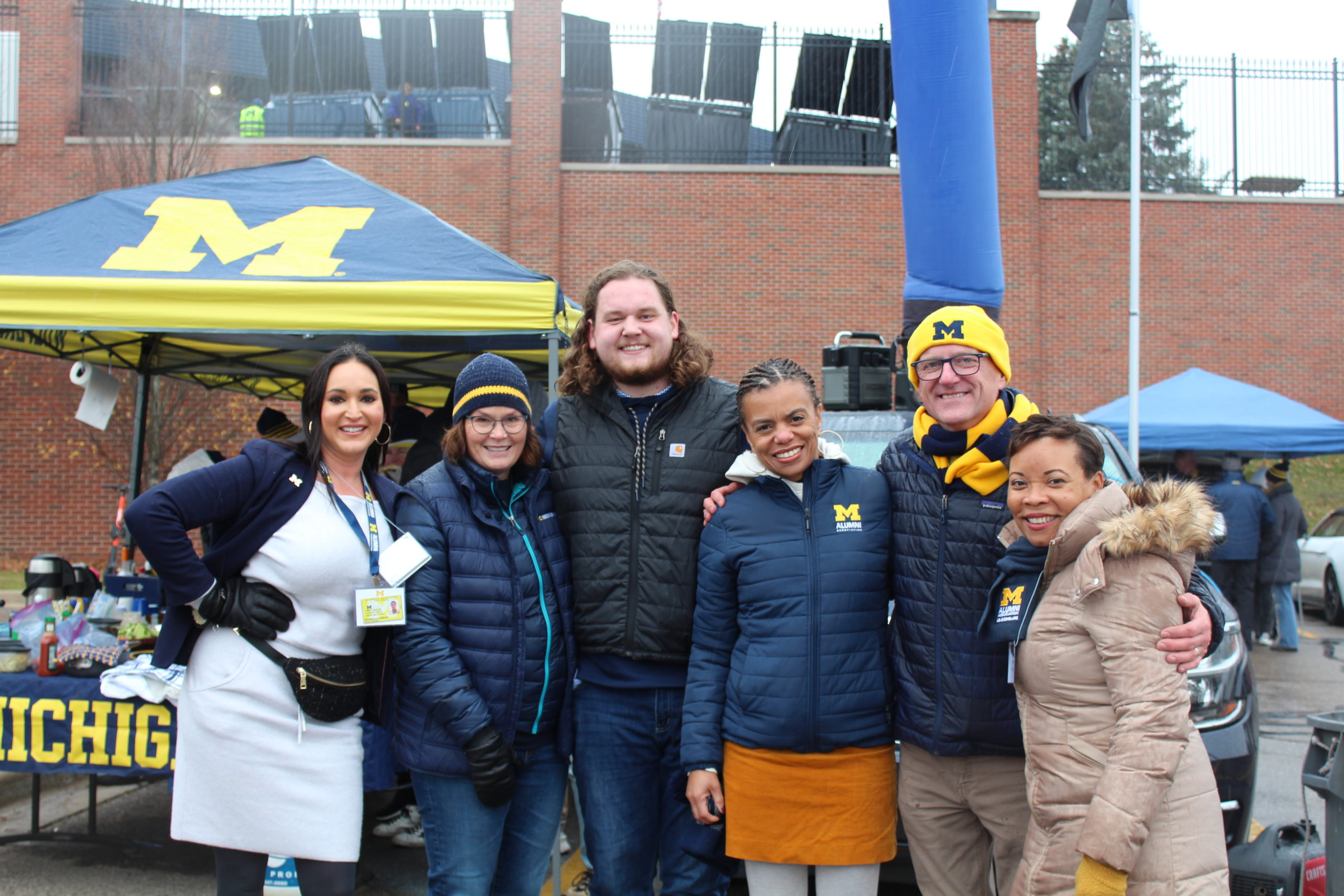
Family Strength
Pauling, 51, has always been powered by the strength of her family, from her mother and father, to her aunts, to her beloved grandmother, Clara Mae Jennings Meeks.
Born in Mississippi in the 1910s, Pauling’s grandparents left the segregated South, made their way to Michigan, and settled on Helen St. and Mack Ave. on the east side of Detroit. With only a third-grade education, her grandfather bought a house, got a job at a tire factory, and created a future for his family, eventually owning a restaurant and snowplow business.
“As I grew into the world, I realized just how remarkable my grandparent’s path and their journey was. It made me respect them so much more, given the things they had overcome,” Pauling says.
She had an especially close relationship with her grandmother throughout childhood, bonding over Scrabble and newspaper puzzles every morning. While this tradition fostered the love of math and problem solving that led to her degree in engineering, to this day, Pauling credits her mother with the ultimate decision to attend U-M.
In high school, she planned to follow her high school sweetheart to General Motors Institute (now Kettering University) in Flint, Michigan, but her school counselor and cheerleading co-captain encouraged her to talk to the U-M admissions team.
Weeks later, when the letter of her admission and notice of her full scholarship arrived, Pauling’s mother decided she would be going to U-M, stating simply: “You’re going to Michigan.”
The Alumni Association’s LEAD Scholarship program hadn’t been formed yet when she applied, but Pauling sees herself as what a LEAD Scholar can become, a clear example of what investing in talent can inspire, especially since that scholarship was a driving factor for her mother’s decision.
From her special relationship with her grandmother and her father’s insistence that she strive for straight A’s, to the scholarship that afforded her the opportunity to become a Wolverine and her Aunt Gerri’s determination to drive the stick-shift pickup, Pauling recognizes the multitude of efforts that led her to U-M.
“The ways people poured into me, in ways big and small. . . these are all things that made me arrive at Michigan’s door in 1989. I’m forever grateful.”
Only Oneness
When Pauling arrived at U-M, her understanding of the world grew, her wealth of knowledge became deeper, and she experienced something she had never felt before — the feeling of “only oneness.”
Only oneness is the situation of being an underrepresented minority in a community that, purposefully or not, makes you feel alone.
Growing up in Detroit, Pauling had always been part of a community that looked like her and shared her experiences, remembering the confidence that came from being affirmed as a teen and young adult.
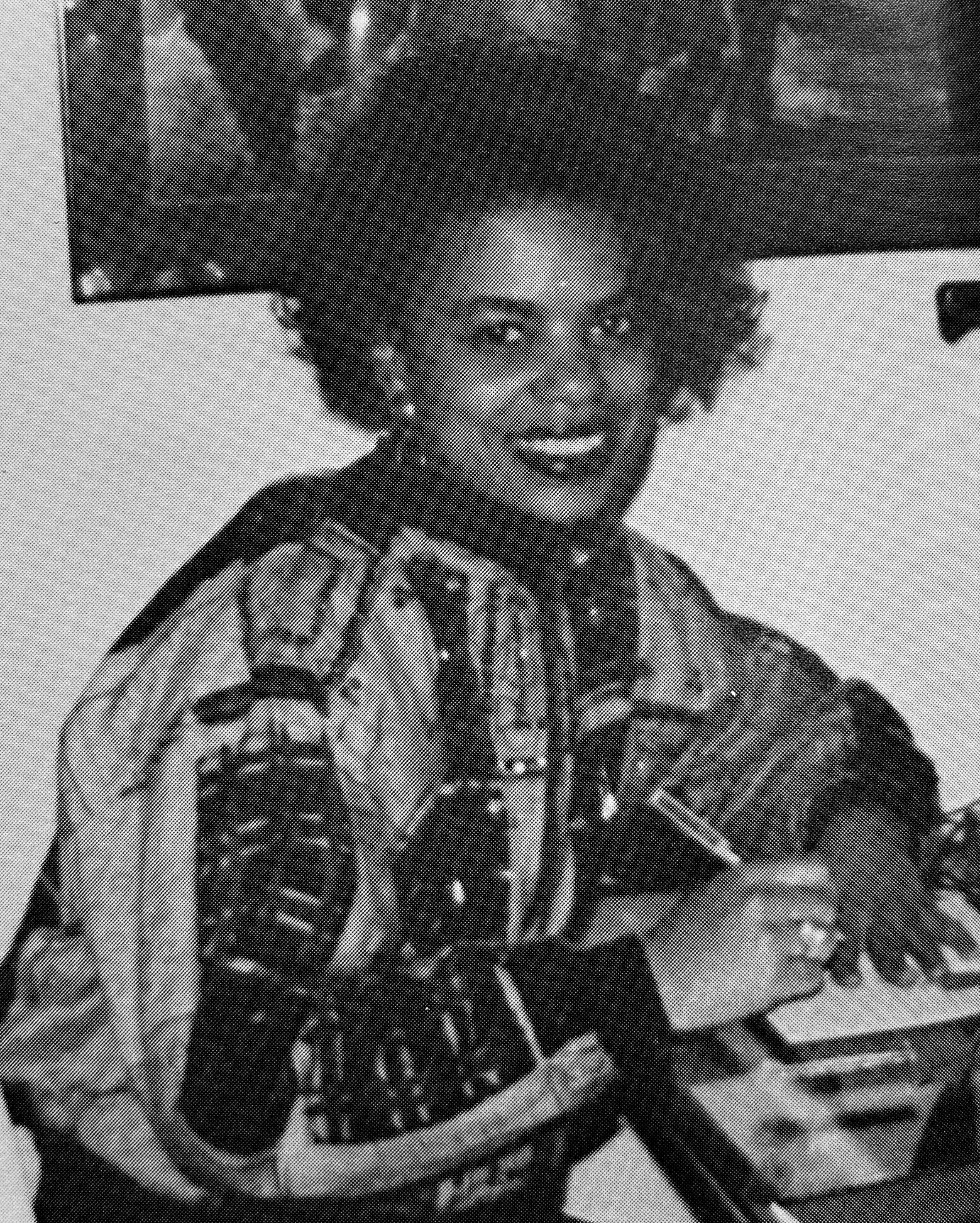
Pauling says that feeling the only oneness can make you question raising your hand in class, question your dreams, and even question cultural norms like your hairstyle. But, over time, she found professors, dorm mates, classmates, and sorority sisters who helped her find her community and her voice. The journey was imperfect but empowering and Pauling fondly remembers not wanting to graduate and leave U-M.
After departing Ann Arbor, Pauling worked as a systems engineer, a civil rights lawyer, as in-house corporate counsel, an international law firm partner, and as a diversity, equity, and inclusion executive at TIAA.She says her engineering degree always helped her, no matter her role.
But now, nearly 30 years since Pauling walked across the stage to receive her diploma in December of 1993, she has come home to U-M as the president and CEO of the Alumni Association. She replaces Steve Grafton, who retired after 28 years on the job.
Just as she has felt the tug to come home, she’s calling all alums to do the same, drawing on the pride she believes they all share, no matter the challenges they may have faced.
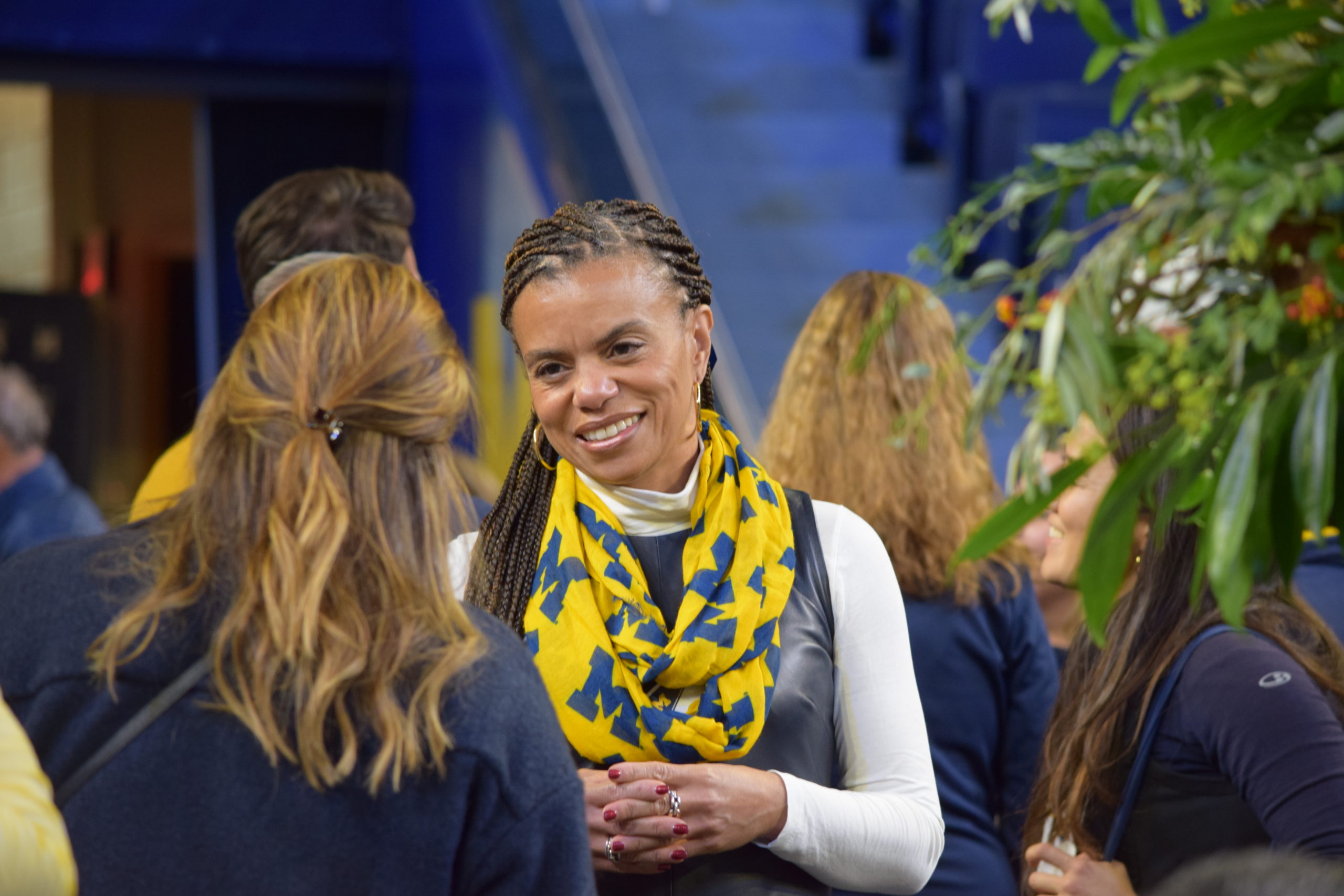
On The Run
For those who know her, it will come as no surprise that Pauling’s new rally cry, “Come Home,” came to her on a run.
Just before she turned 40, Pauling unwittingly found herself preparing for a 5K race, though she’d never considered herself a runner. It took Pauling three months to prepare for the race but now, 11 years later, she has run 15 marathons, including the famed Boston Marathon and the Detroit Free Press Marathon, which took her past Helen St., her brother’s high school, and the hospital where her grandfather passed away.
Pauling finds her greatest clarity, inspiration, and recharge while running, so when she was presented with the opportunity to leave TIAA after 16 years to become the president and CEO of the Alumni Association, she went on a run and asked herself: “Am I ready to come home?”
But the answer wasn’t an immediate and obvious “yes.”
Over the last decade, Pauling had been approached with other job opportunities and hadn’t considered a change until she felt the familiar pull of inspiration and impact.
Pauling recognizes that, as a young adult, she didn’t make life-altering decisions with the understanding that inspiration and impact were driving forces in her life. But she moved from engineering to civil rights law because she felt inspired to defend those facing only oneness. She was compelled to pursue corporate law because she wanted to impact on a greater level. She led a bold social justice platform because she wanted to inspire others to “Be the Change” — a successful action plan she launched at TIAA (the name of which also came to her on a run).
Throughout her life, the need to feel inspired, the desire to inspire others, and the charge of impact were the threads that wove through her personal and professional life.
“The desire to help the person that is unheard or unseen I think is actually paying tribute to my family because I grew to have such regard for what they overcame. I knew how brilliant and hardworking they were. They won’t be in anyone’s history books, but their life story is amazing,” she says.
The opportunity to lead the Alumni Association appealed to Pauling because it was “inspiration and impact on another level and to a diverse, global community.”
So when Pauling felt the pull of inspiration and impact once more, she followed it. This time, back to where it all began.
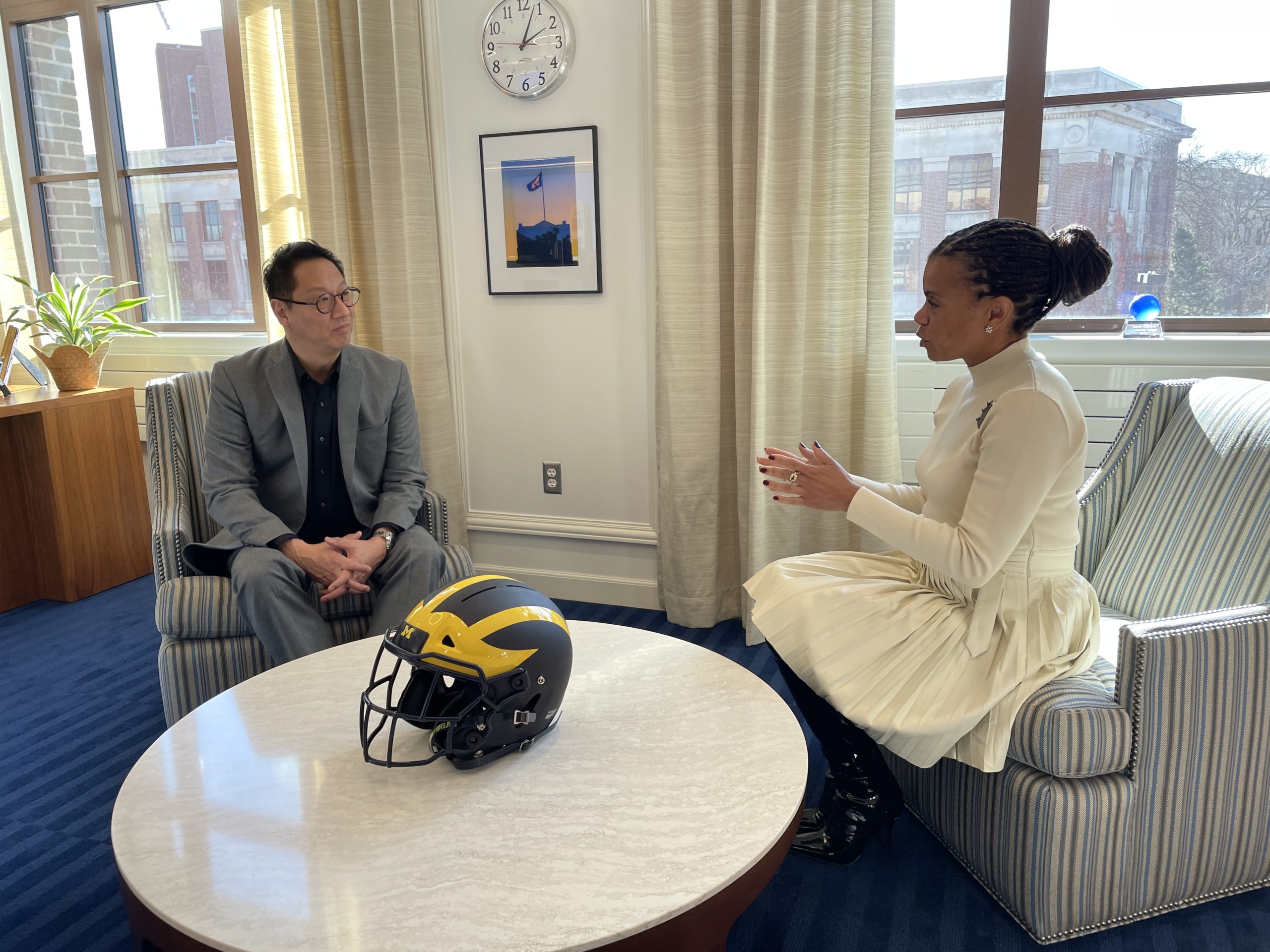
Inspiring and Impacting Alumni
As the Alumni Association prepares to celebrate its 125-year anniversary, Pauling hopes the call to come home to U-M draws on alum’s pride and “Michigan’s magic” — the moments where alums found their voice, forged friendships, fought for what they believed in and prepared to face the world, backed by an exceptional education, irreplaceable experiences, and the Leaders and Best legacy.
While she has called for fellow alums to come home with her, Pauling knows that many still need to feel inspired to do so. And she hopes to reach more alumni through meaningful engagement.
“Engagement is the heart, soul, and business of the Alumni Association. We must, inclusively, serve and anticipate the needs of alumni around the world. And if we do that, we’ll make an impact around the world,” she says. “We want to inspire alumni and we want to be impactful for them. At the same time, we want them to be positioned to inspire and be impactful.”
She wants all alumni to feel connected — to the University, to each other, and to the Association — and has begun to ask what alumni care about, what is important to them, and what will pull them home.
“I think that’s part of our goal, as the Alumni Association, to create ‘pull moments’ — moments where, as an alum, you’re filled with pride, or there’s a magnetism or an appreciation for how Michigan positions you.
“But the Alumni Association can cultivate pull moments across a spectrum of things that will matter in the lives of alum — professional support, wellness, hobbies, and even providing ways they can engage with their family and friends meaningfully, like at [Camp] Michigania, creating a whole community around each alum,” she says.
Pauling hopes that the Alumni Association will engage all alums with the message that the Alumni Association deeply cares about them and their needs.
“Because of that lived experience of being the ‘only one,’ it makes me want to make sure that we are saying to alumni we see you and we hear you.”
KATHERINE FIORILLO is the editor of Michigan Alum.

